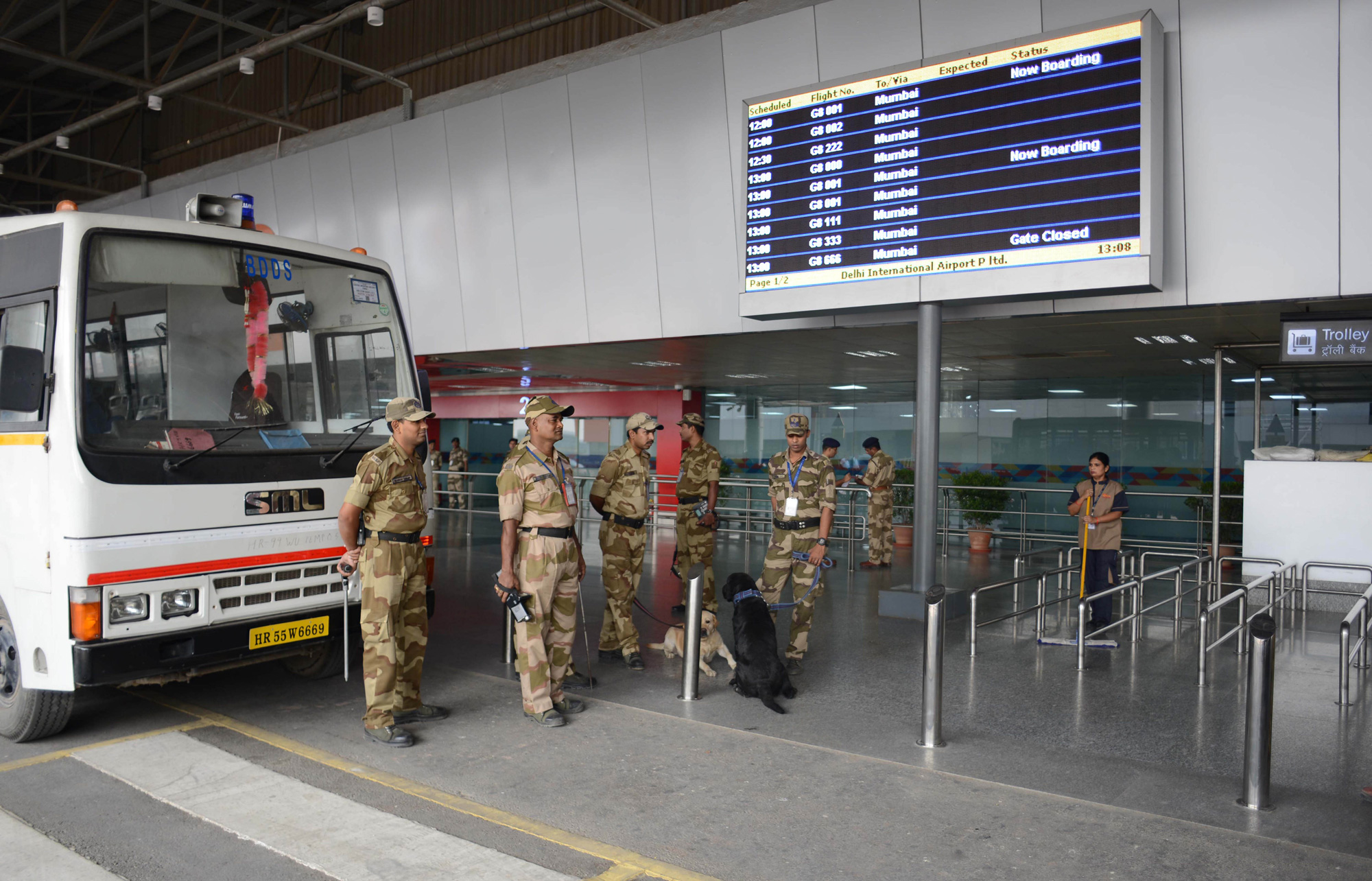Many of the country’s airports suffer from “lacunae” in their security, the head of the agency that protects most Indian airports told The Telegraph on Monday.
“There are several lacunae in the existing security mechanism in several airports which need to be addressed,” Rajesh Ranjan, director-general of the Central Industrial Security Force (CISF), said ahead of a two-day international seminar on aviation security that his force is organising here from Tuesday.
“There are new challenges and we are working to make it (airport security) fool-proof,” he added, declining to specify either the weaknesses or the airports where they prevail.
The CISF is in charge of security at 60 of the 100 airports in the country. The local police or other central paramilitary forces handle security at the remaining 40, which include the Srinagar, Jammu, Gorakhpur, Mysore, Jabalpur, Ludhiana, Jamshedpur, Cooch Behar and Durgapur airports. Nineteen of these 40 are classified as “hyper-sensitive”.
Sources said that national security adviser Ajit Doval, who had earlier ordered a security audit of all airports, had suggested that all the 100 airports be handed over to the CISF.
They added that the security agencies had in a report to the home ministry highlighted that the smaller airports were potential sitting ducks for terrorists. One of the smaller airports was recently inaugurated by Prime Minister Narendra Modi in Sikkim.
“Building new airports is good but we also need better security in the light of the heightened threat perception,” an Intelligence Bureau official said.
“There are several security vulnerabilities at the smaller airports, and terrorists can exploit the gaps to target aircraft taking off from there.”
He said the security agencies had proposed standardised security protocols at these airports, including controlled entry and exit for staff with the help of access cards, biometric credentials and personal identification numbers.
The protocol currently followed at all the major Indian airports includes metal-detector door frames, frisking of passengers, and X-ray scans of baggage.
The CISF had last year written to the Union home ministry expressing its willingness to take over security even outside the perimeters of the airports it protects --- if given an additional 4,500 personnel.
It had highlighted that the local police, who provide security outside the airports --- in areas such as the parking lots and the approach roads --- were not fully equipped to tackle terror attacks. The CISF already handles outside security at the Delhi and Mumbai airports.
“In its report the CISF has mentioned that the local police don’t deploy enough personnel to guard the areas around airports and are not well-trained for the job,” the Intelligence Bureau official said.
Airport security was handed over to the CISF after an Indian Airlines flight was hijacked in Kathmandu and taken to Kandahar in December 1999. The force now deploys 21,000 personnel at the 60 airports it guards.
“The CISF will soon take over the security of Kannur airport in Kerala,” Ranjan said.
Delegates from 18 countries and 14 airlines will participate in the seminar, to be attended by Union home minister Rajnath Singh and senior security agency officials.










